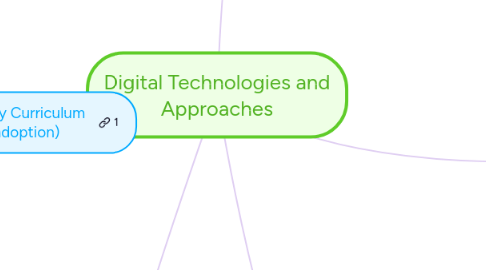
1. PSE / Digital Wellness and Organisation (consolidating)
1.1. Collaborating around PSE units focusing on socialising online / organising, managing distraction (MS/HS)
1.2. Ongoing Parent Education and support
1.3. Collaborating around PSE units focusing on socialising online / organising, managing distraction (MS/HS)
2. Digital Literacy Curriculum Articulation (adoption)
2.1. Researching with Digital Tools
2.1.1. Construct Knowledge Using Research Strategies
2.1.2. Synthesise Using Digital Tools and Methods
2.1.3. Evaluate Understanding and Processes
2.2. Creating with Digital Tools
2.2.1. Facilitate Thinking using Digital Tools
2.2.1.1. iterating in Google Sketchup
2.2.1.2. Online research and inspiration
2.2.2. Design Process using Digital Tools
2.3. Communicating and Collaborating with Digital Tools
2.3.1. Communicate using Digital Tools
2.3.2. Collaborate with Peers using Digital Tools
2.3.2.1. Google Apps
2.3.2.2. Padlet
2.3.2.3. Seesaw / OLP
2.3.2.4. Mindmapping
2.3.3. Engage with Global Communities using Digital Tools
2.4. Computational Thinking
2.4.1. Formulate and Understand Problems
2.4.2. Analyse and Deconstruct Problems
2.4.3. Create and Test Solutions
2.4.4. Develop Automated Solutions
2.5. Managing and Operating Digital Tools
2.5.1. Understand and Operate Hardware
2.5.2. Understand and Operate Software
2.6. Digital Citizenship
2.6.1. Identity and Behaviour
2.6.2. Rights and Responsibilities
2.6.3. Privacy and Security
3. Enhancing pedagogy through the Learning Principles (consolidating)
3.1. Metacognition
3.1.1. use of reflective journals
3.1.2. Seesaw and oral reflections / screencasting
3.2. Ongoing formative assessment
3.2.1. Teamie / OLP assignments, rubrics, commenting. Turnitin for feedback
3.2.2. Online quiz tools - Socrative, Google Forms, Teamie Quizzes, Mentimeter
3.2.3. Tracking and use of Hapara / Teacher Dashboard through both PS
3.3. Concept-based
3.3.1. Screencasting to demonstrate understanding (PS Maths, HS PE etc)
3.3.2. Mindmapping
3.3.3. Online modelling tools (Maths / Science)
3.3.4. Online simulations (Science, Humanities)
3.4. Differentiation
3.4.1. Online resources - Khan Academy, MyMaths
3.4.2. OLP/Teamie units for flexible progression
3.4.3. student choice in product for assessment?
